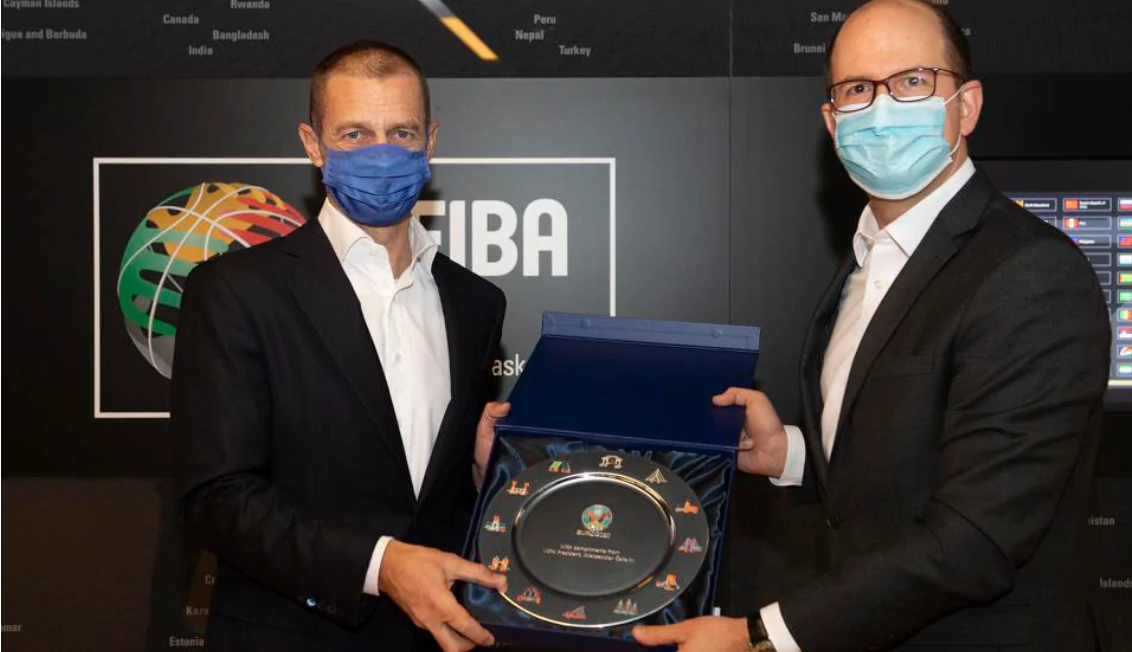In the final months of 2018, two contrasting views were put forward outlining the battle between the established order of sport governance and commercial entities.
International Olympic Committee (IOC) President Thomas Bach offered the view of the establishment, telling the European Olympic Committees General Assembly that the European sport model was under threat from commercially minded individuals and organisations.
"Sports organisations, based on volunteers and social engagement, are being treated like any commercial sport organisers who wish to pick the cherries of sport," Bach said.
"They just want to harvest the fruits of the trees you have planted and nurtured over so many years.
"They treat sport like any goods in life and speak of free trade and engagement.
"This is putting many of our sports organisations into trouble.”
Bach decried the lack of involvement of Governments and the European Union in halting the advancement of commercial organisers, suggesting politicians viewed them as the same as the traditional organisers.
A differing view was expressed by International Swimming League (ISL) financer Konstantin Grigorishin the following month, when he boldly declared that the "day of the sports governing body is coming to an end".
Grigorishin sat alongside leading athletes from the sport who had boldly launched a class action lawsuit against the International Swimming Federation (FINA), who had threatened to ban swimmers from the Olympic Games.
Months later the withdrawal of FINA’s legal threats saw the ISL successfully muscle into the sport, with its franchise league marking another victory for the so-called American model over its European counterpart.
The EuroLeague in the early 2000s had marked a successful example of a breakaway from traditional governing bodies. With the growth of American ownership of football clubs and the involvement of the likes of Barcelona and Real Madrid in the EuroLeague format, it caused me to wonder whether a football equivalent might not have been far away.
We probably will never know, but the meeting between International Basketball Federation secretary general Andreas Zagklis and UEFA President Aleksander Čeferin in February, which centred on the protection of the European sport model and "openness of competitions", seems more interesting now than it did at the time.
It is perhaps understandable why Real Madrid President Florentino Pérez appeared confused this week about why the EuroLeague breakaway proved successful, yet his Super League dream lies in tatters.
"In basketball, we play the EuroLeague alongside the domestic league," Pérez told the El Larguero radio show. "Bayern do the same, it’s normal.
"Is football different or what? In basketball, they don’t protest.
"The EuroLeague saved us in basketball."
The Super League fiasco perhaps can be viewed as the European model striking back, with cultural identity and opposition to franchise leagues from supporters helping to chalk up a rare win.
UEFA President Aleksander Čeferin, who was joined by Bach at the UEFA Congress in Montreux at the height of the crisis this week, has been viewed by many as having emerged from the week stronger than before.
Čeferin was elected in 2018 pledging to help tackle the distribution of revenues which have distorted national competitions across Europe.
"I think it's one of the biggest challenges we have ahead of us," he told ESPN in 2018.
"I don't think we can [close] the gap or bring all of the clubs [on the same level], that would be a very naive way of thinking.
"But there are things we have to change and it's a subject we're discussing with our stakeholders.
"It's also something I've discussed with the European Union, so we'll see what we can do.
"But at the very least we'll be trying to stop the gap from widening so quickly."
With 12 of Europe’s biggest clubs having overstepped the mark this week, Ceferin now appears to have the backing of many to instigate major changes with the Super League threat now extinguished and help align the European game for the better.
It is tempting to consider whether this victory for a governing body could embolden others, such as FIBA.
I note that a column on the FIBA website - albeit one that is viewed as separate from the governing body - has celebrated the importance of sporting principles when highlighting fan opposition to the Super League, while outlining the merits of FIBA’s Basketball Champions League.
Any advancements from FIBA seem unlikely, but one possible positive for governing bodies could be how Governments and the European Commission were forced into action given the outcry from fans and the media.
This may be a key area that differs from the challenges posed back in 2018, when Bach bemoaned how Governments had not understood the difference between the European and American models.
With leading politicians from Britain, France and Italy involved in the Super League debate with the aim to protect the status quo, I wonder whether this could be replicated in other sports should they come under threat.
Equally the involvement of athletes has to be considered, with the opposition to the Super League plan from players clearly damaging the owners’ ambitions, just as the support for the ISL ultimately rendered FINA's opposition meaningless.
What seems clear is governing bodies will continue to face challenges from commercial bodies and will need to point to improved governance to justify their established positions.
Some governing bodies believe they have already attempted to adapt to the new climate, with the International Table Tennis Federation suggesting their World Table Tennis enterprise marked a separation of their regulatory role and commercial efforts.

